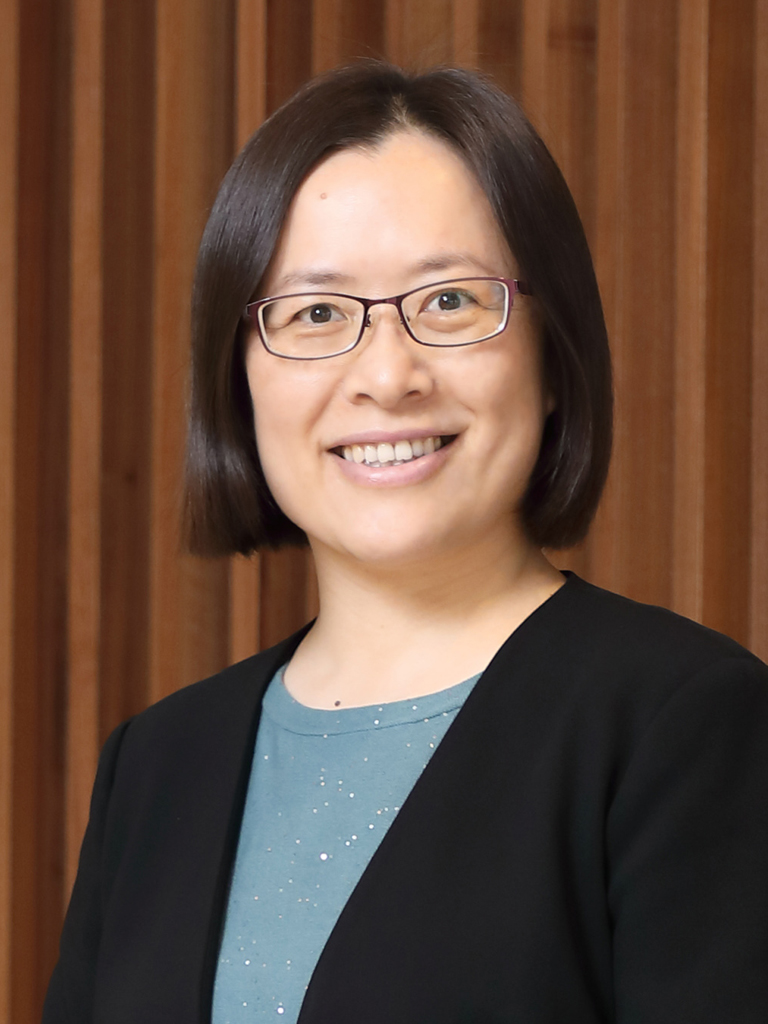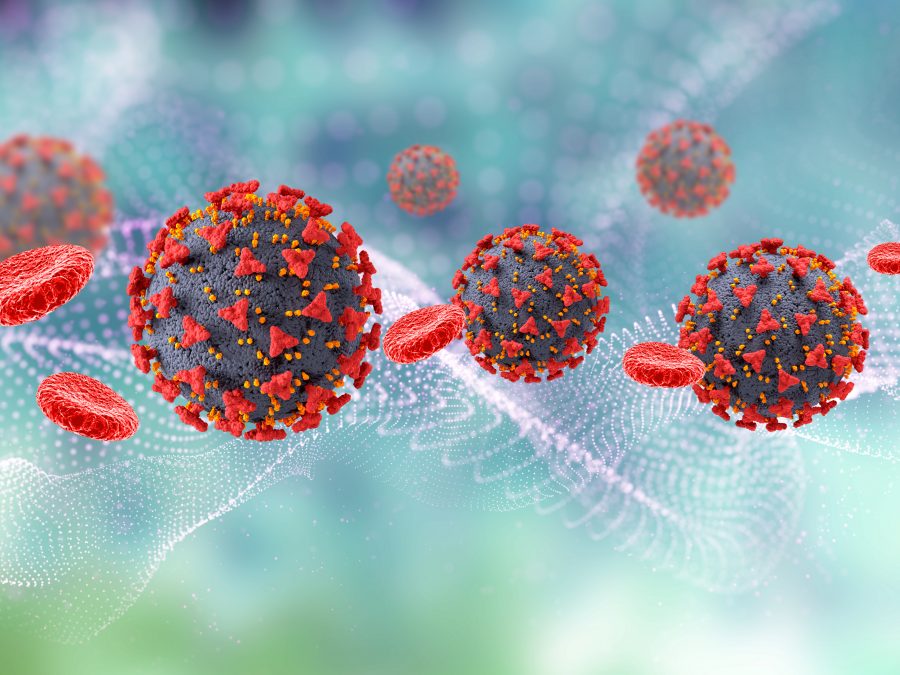Programme 3
AI-Enabled Causal Inference for Disease Control

This programme aims to develop new methodology for predicting seasonal influenza epidemics around the world, by using global surveillance data and electronic medical records from Hong Kong’s Hospital Authority and elsewhere. Models will be developed to provide reliable predictions of future influenza activity and explore the impact of public health interventions such as travel restrictions and school closures. Moreover, the research team will sequence the genomes of bacteria identified in samples collected from patients and compare the genetic characteristics of these bacteria with their drug resistance profiles. New genes will be identified that determine drug resistance, as well as determine the background factors that influence the appearance of these genes.
This programme will also improve the surveillance and diagnosis of respiratory virus infections in mainland China by using a large dataset of laboratory diagnoses of respiratory pathogens and creating a surveillance dashboard that will provide timely reports of the pathogens circulating in different regions of China. This information will aid clinical diagnosis and management.
Scientific Leadership
-

Professor Benjamin Cowling
Lead Scientist

Professor Benjamin Cowling
Lead Scientist (Programme 3)
Laboratory of Data Discovery for Health
Email: bcowling@d24h.hk / bcowling@hku.hkProfessor Benjamin Cowling is the Lead Scientist of the programme “AI-Enabled Causal Inference for Disease Control” (Programme 3) at the Laboratory of Data Discovery for Health (D24H), and Helen and Francis Zimmern Professor in Population Health and Head of the Division of Epidemiology and Biostatistics at the School of Public Health of the LKS Faculty of Medicine of the University of Hong Kong (HKU SPH). Professor Cowling is responsible for teaching the introductory module in epidemiology on the MPH curriculum, and is the chairman of the Departmental Research Postgraduate Committee and a co-director of the WHO Collaborating Centre for Infectious Disease Epidemiology and Control at HKU SPH.
Professor Cowling’s primary research focus is in infectious disease epidemiology. In recent years, he has designed and implemented large field studies of influenza transmission in the community and the effectiveness and impact of control measures. His latest research has focused on the modes of respiratory virus transmission, influenza vaccination effectiveness, and immunity to infections at the individual and population level. He has strong links with China CDC, and the NIGMS-funded Harvard Center for Communicable Disease Dynamics.
Professor Cowling is a fellow of the Royal Statistical Society and a Fellow of the UK Faculty of Public Health. He is the Editor-in-Chief of Influenza and Other Respiratory Viruses, and an Associate Editor of Emerging Infectious Diseases. Professor Cowling has more than 500 publications listed in Scopus, including 66 articles with 66 or more citations (H-index of 66). He has received numerous awards including HKU Outstanding Young Researcher Award (2011), Croucher Senior Research Fellowship (2015), HKU Outstanding Researcher Award (2017), and RGC Senior Research Fellowship (2020). He was awarded an MBE in Queen Elizabeth II’s 2021 birthday honours.
READ MORE -

Professor Gabriel M. Leung
Co-Principal Investigator

Professor Gabriel M. Leung
Chief Scientific Officer Emeritus
Laboratory of Data Discovery for HealthOne of Asia’s most respected higher education, health and philanthropic leaders, Professor Gabriel Leung is known for his commitment to improving human capabilities, nurturing impactful innovation and building strong institutions. He is the Executive Director (Charities and Community) of the Hong Kong Jockey Club, overseeing its Charities Trust, while serving as a Governor of The Wellcome Trust – both of which are ranked amongst the top ten philanthropies globally. Professor Leung is also the Chief Scientific Officer Emeritus of the Laboratory of Data Discovery for Health (D24H), and the Honorary Clinical Professor at the School of Public Health, LKS Faculty of Medicine at the University of Hong Kong.
His career has straddled academe, public service, and philanthropy. From 2013 to 2022, he was the longest-serving Dean of Medicine and the inaugural Helen and Francis Zimmern Professor in Population Health at the University of Hong Kong. Formerly, he was Hong Kong’s first Under Secretary for Food and Health and the fifth Director of the Chief Executive’s Office in government.
A specialist in public health medicine by training, Professor Leung is a leading epidemiologist and global health exponent. His work has revolved around topics that have major population health impact locally, where Hong Kong is a reliable and unique epidemiologic sentinel for mainland China and the Chinese diaspora, or where it is best placed to address the fundamental science at hand globally.
Professor Leung’s research defined the epidemiology of three novel viral epidemics, namely SARS in 2003, H7N9 influenza in 2013 and most recently COVID-19. As minister, he led Hong Kong government’s response against the 2009 influenza pandemic. He was the founding co-director of HKU’s World Health Organization (WHO) Collaborating Centre for Infectious Disease Epidemiology and Control and founded the D24H at the Hong Kong Science and Technology Park.
In parallel, Professor Leung led several large-scale longitudinal cohorts (Children of 1997, FAMILY, Department of Health Elderly Health Service cohort), tracking tens of thousands of lives to study the fundamental causes of non-communicable conditions and to explain the health impacts of contemporary social phenomena.
A final strand of his scholarly work concerned the economics and policy issues of health systems. His team was the government’s health accountant and projected health care human resources needs. Regionally, Professor Leung has tirelessly worked to build capacity throughout the Asia Pacific. He served as founding Chair of the Asia Pacific Observatory on Health Systems Policies and continues to lead its Strategic Technical Advisory Committee.
Around the world, Professor Leung regularly advises national and international agencies, including the World Health Organisation, World Bank, Asian Development Bank, Boao Forum for Asia, Institut Pasteur, Japan Center for International Exchange, National Centre for Infectious Diseases of Singapore and China Centers for Disease Control and Prevention. He is an Adjunct Professor of Peking Union Medical College Hospital and Adjunct Professorial Researcher of the China National Health Development Research Center.
Locally, he was Vice President and Censor in Public Health Medicine of the Hong Kong College of Community Medicine, and an elected council member of the Hong Kong Academy of Medicine. He was a member of the Hospital Authority and completed two terms on the University Grants Committee, which are respectively a statutory agency responsible for all public health care services and a government advisory body on the development and funding requirements of the higher education sector.
He co-edited the Journal of Public Health, was inaugural co-editor of Epidemics, associate editor of Health Policy and is founding deputy editor-in-chief of China CDC Weekly. He currently serves on the editorial boards of ten journals, including the British Medical Journal.
After reading medicine at the University of Western Ontario, Professor Leung completed family medicine residency training in Toronto. He earned a master’s from Harvard University and research doctorate from HKU.
He is an elected member of the US National Academy of Medicine and was awarded the Gold Bauhinia Star (second highest civilian honour) by the Hong Kong government for distinguished service in protecting and promoting population health.
READ MORE -

Professor Peng Wu
Co-Principal Investigator
Assistant Professor, Division of Epidemiology and Biostatistics, School of Public Health, The University of Hong Kong
Professor Peng Wu
Co-Principal Investigator (Programme 3)
Assistant Professor, Division of Epidemiology and Biostatistics, School of Public Health, The University of Hong Kong
Email: pengwu@hku.hkProfessor Wu is the Co-Principal Investigator of the programme “AI-Enabled Causal Inference for Disease Control” (Programme 3) at the Laboratory of Data Discovery for Health.
She is an Assistant Professor in the Division of Epidemiology and Biostatistics, School of Public Health at the University of Hong Kong. She is responsible for an introductory module in infectious diseases in the MPH curriculum.
Her primary research area is infectious disease epidemiology. She has a growing interest in the epidemiology of antimicrobial resistance, as well as a continued interest in influenza (seasonal and avian influenza), RSV, hand, foot and mouth disease and other emerging respiratory infections. Her research involves investigation of the burden and transmission dynamics of infectious diseases, and using knowledge of underlying mechanisms to optimize the use of control measures.
READ MORE
Other Project Members
-

Professor Sheikh Taslim Ali
Assistant Professor

Professor Sheikh Taslim Ali
Assistant Professor (Programme 3)
Assistant Professor, Division of Epidemiology and Biostatistics, School of Public Health, The University of Hong Kong
Email: alist15@hku.hkProfessor Ali is a Co-Investigator of the programme “AI-Enabled Causal Inference for Disease Control” (Programme 3) at the Laboratory of Data Discovery for Health.
He is a Assistant Professor in the Division of Epidemiology and Biostatistics, School of Public Health at the University of Hong Kong. He is the course coordinator of Introduction to Biostatistics, one of the core courses for the Master of Public Health programme of the School.
Professor Ali’s research interests are mathematical and statistical epidemiology, modelling of infectious diseases and optimization of control policies. The main focus of his current research is to understand the disease dynamics (including influenza, COVID-19, RSV, hand-foot-and-mouth disease and other respiratory diseases) under the effect of time-varying interventions and seasonal forces (e.g. meteorological, pollutants and socio-economic). He develops the general prediction and forecast models for disease outbreaks, with the aim of determining how the effectiveness of containment and mitigation policies depends on disease severity.
READ MORE -

Dr Zhanwei Du
Research Assistant Professor

Dr Zhanwei Du
Research Assistant Professor (Programme 3)
Research Assistant Professor, Division of Epidemiology and Biostatistics, School of Public Health, The University of Hong Kong
Email: zwdu@hku.hkDr Du is a Co-Investigator of the programme “AI-Enabled Causal Inference for Disease Control” (Programme 3) at the Laboratory of Data Discovery for Health.
He is a Research Assistant Professor in the Division of Epidemiology and Biostatistics, School of Public Health at the University of Hong Kong. His general research area is computational epidemiology, machine learning and data science. He mainly focuses on modeling complex phenomena in biological and social systems. The applications include computational social science with an emphasis on smart city and computational biology covering a wide range of communicable and non-communicable diseases (e.g., COVID-19, influenza, Ebola, sexual transmission.
READ MORE
Featured Publications
-
- BMC Medicine
12 Sep 2024
-
Efficacy and safety of respiratory syncytial virus prefusion F protein vaccines in adults
- Journal of Infection01 Aug 2024
-
- PLoS Computational Biology
31 Jul 2024
-
- JMIR Public Health and Surveillance
12 Jul 2024
-
- Frontiers in Public Health
09 Jul 2024
-
- American Journal of Epidemiology
24 Jun 2024
-
- Journal of Antimicrobial Chemotherapy
05 May 2024
-
- Open Forum Infectious Diseases
25 Apr 2024
-
16 Apr 2024
-
Comparative epidemiology of outbreaks caused by SARS-CoV-2 Delta and Omicron variants in China
- Epidemiology and Infection19 Mar 2024
-
- International Journal of Antimicrobial Agents
23 Jan 2024
-
Public Health Impact of Paxlovid as Treatment for COVID-19, United States
- Emerging Infectious Diseases05 Jan 2024
-
Nowcasting and Forecasting Seasonal Influenza Epidemics - China, 2022-2023
- China CDC Weekly08 Dec 2023
-
01 Nov 2023
-
Comparison of Bivalent and Monovalent mRNA Vaccine Boosters
- Clinical Infectious Diseases30 Aug 2023
-
28 Aug 2023
-
- NPJ Vaccines
12 Aug 2023
-
- The Journal of Infectious Diseases
24 Apr 2023
-
The effect of variation of individual infectiousness on SARS-CoV-2 transmission in households
- eLife07 Mar 2023
-
- Nature Communications
10 Jan 2023
-
Nonpharmaceutical interventions for managing SARS-CoV-2
- Current Opinion in Pulmonary Medicine01 May 2023
-
Accounting for the Potential of Overdispersion in Estimation of the Time-varying Reproduction Number
- Epidemiology01 Mar 2023
-
12 Feb 2023
-
Characterizing Human Collective Behaviors During COVID-19 - Hong Kong SAR, China, 2020
- China CDC Weekly27 Jan 2023
-
- Open Forum Infectious Diseases
16 Dec 2022
-
- The Lancet Regional Health Western Pacific
23 Nov 2022
-
- China CDC Weekly
18 Nov 2022
-
- The Lancet Global Health
01 Nov 2022
-
- BMC Medicine
25 Oct 2022
-
- China CDC Weekly
07 Oct 2022
-
Impact of mass rapid antigen testing for SARS-CoV-2 to mitigate Omicron outbreaks in China
- Journal of Travel Medicine24 Sep 2022
-
Evaluation of Effectiveness of Global COVID-19 Vaccination Campaign
- Emerging Infectious Diseases09 Sep 2022
-
Epidemiology of Infections with SARS-CoV-2 Omicron BA.2 Variant, Hong Kong, January–March 2022
- Emerging Infectious Diseases09 Sep 2022
-
- The Journal of Infectious Diseases
02 Sep 2022
-
Reproduction number of monkeypox in the early stage of the 2022 multi-country outbreak
- Journal of Travel Medicine25 Aug 2022
-
Within-host dynamics of SARS-CoV-2 infection: A systematic review and meta-analysis
- Transboundary and Emerging Diseases30 Jul 2022
-
Systematic review and meta-analyses of superspreading of SARS-CoV-2 infections
- Transboundary and Emerging Diseases07 Jul 2022
-
International risk of SARS-CoV-2 Omicron variant importations originating in South Africa
- Journal of Travel Medicine15 Jun 2022
-
Accuracy for key parameters in modelling study
- The Lancet Public Health01 Jun 2022
-
- Journal of Travel Medicine
20 Apr 2022
-
15 Apr 2022
-
Optimizing COVID-19 surveillance using historical electronic health records of influenza infections
- PNAS Nexus14 Apr 2022
-
Modeling comparative cost-effectiveness of SARS-CoV-2 vaccine dose fractionation in India
- Nature Medicine24 Feb 2022
-
- Clinical Infectious Diseases
16 Feb 2022
-
Genomic epidemiology of SARS-CoV-2 under an elimination strategy in Hong Kong
- Nature Communications08 Feb 2022
-
Restaurant-Based Measures to Control Community Transmission of COVID-19, Hong Kong
- Emerging Infectious Disease07 Feb 2022
-
RiskEstim: A Software Package to Quantify COVID-19 Importation Risk
- Frontiers in Physics24 Jan 2022
-
Cost-effective proactive testing strategies during COVID-19 mass vaccination: A modelling study
- The Lancet Regional Health – Americas15 Jan 2022
-
20 Dec 2021
-
CoronaVac efficacy data from Turkey
- The Lancet20 Nov 2021
-
Using secondary cases to characterize the severity of an emerging or re-emerging infection
- Nature Communication04 Nov 2021
-
Nowcasting towards sustainable SARS-CoV-2 endemicity
- The Lancet27 Oct 2021
-
Effectiveness of International Travel Controls for Delaying Local Outbreaks of COVID-19
- Emerging Infectious Disease13 Oct 2021
-
Sepsis-associated hospitalisations and antimicrobial use in Hong Kong
- Epidemiology & Infection11 Oct 2021
-
COVID-19 Importation Risk From Olympic Athletes Prior to the Tokyo 2020 Olympics
- Frontiers in Physics07 Oct 2021
-
- Clinical Infectious Diseases
22 Aug 2021
-
Joint Estimation of Generation Time and Incubation Period for Coronavirus Disease 2019
- The Journal of Infectious Diseases21 Aug 2021
-
- The Lancet Regional Health – Western Pacific
13 Aug 2021
-
COVID-19 transmission in Hong Kong despite universal masking
- Journal of Infection31 Jul 2021
-
Assessing Community Vulnerability over 3 Waves of COVID-19 Pandemic, Hong Kong, China
- Emerging Infectious Diseases27 Jul 2021
-
Comparative immunogenicity of mRNA and inactivated vaccines against COVID-19
- The Lancet Microbe16 Jul 2021
-
- Clinical Infectious Diseases
15 Jul 2021
-
Fractionation of COVID-19 vaccine doses could extend limited supplies and reduce mortality
- Nature Medicine05 Jul 2021
-
- Clinical Infectious Diseases
12 Jun 2021
-
- The Journal of Infectious Diseases
04 Jun 2021
-
Risk for International Importations of Variant SARS-CoV-2 Originating in the United Kingdom
- Emerging Infectious Diseases27 May 2021
-
Transmission dynamics and control of two epidemic waves of SARS-CoV-2 in South Korea
- BMC Infectious Diseases26 May 2021
-
Serial intervals and case isolation delays for COVID-19: a systematic review and meta-analysis
- Clinical Infectious Diseases26 May 2021
-
- Emerging Infectious Diseases
01 May 2021
-
- The Journal of Infectious Diseases
15 Apr 2021
-
- Clinical Infectious Diseases
27 Mar 2021
-
- EClinicalMedicine
13 Feb 2021
-
Vaccination Uncertainties and COVID-19 Prospects in 2021
- China CDC Weekly12 Feb 2021
-
- Clinical Infectious Diseases
06 Jan 2021
-
Face masks and COVID-19: don't let perfect be the enemy of good
- Euro-surveillance10 Dec 2020





